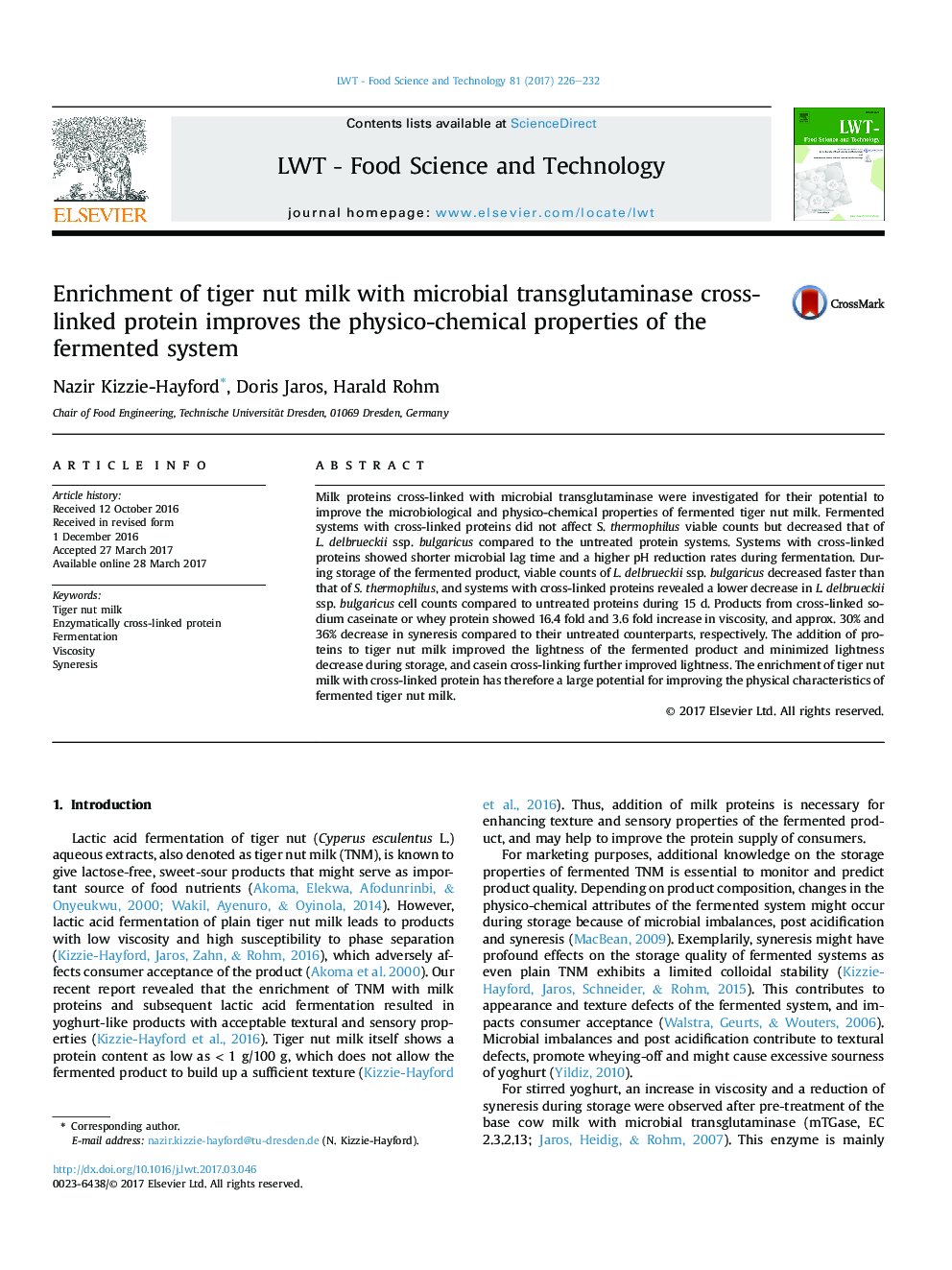| Article ID | Journal | Published Year | Pages | File Type |
|---|---|---|---|---|
| 5768494 | LWT - Food Science and Technology | 2017 | 7 Pages |
â¢Protein cross-linking was investigated for improving fermented tiger nut milk.â¢Cross-linked sodium caseinate increases fermentation time of tiger nut milk.â¢Cross-linked proteins minimize starter count decline during product storage.â¢Cross-linked proteins improve viscosity and syneresis of fermented tiger nut milk.â¢Protein enrichment improves lightness of fermented tiger nut milk.
Milk proteins cross-linked with microbial transglutaminase were investigated for their potential to improve the microbiological and physico-chemical properties of fermented tiger nut milk. Fermented systems with cross-linked proteins did not affect S. thermophilus viable counts but decreased that of L. delbrueckii ssp. bulgaricus compared to the untreated protein systems. Systems with cross-linked proteins showed shorter microbial lag time and a higher pH reduction rates during fermentation. During storage of the fermented product, viable counts of L. delbrueckii ssp. bulgaricus decreased faster than that of S. thermophilus, and systems with cross-linked proteins revealed a lower decrease in L. delbrueckii ssp. bulgaricus cell counts compared to untreated proteins during 15 d. Products from cross-linked sodium caseinate or whey protein showed 16.4 fold and 3.6 fold increase in viscosity, and approx. 30% and 36% decrease in syneresis compared to their untreated counterparts, respectively. The addition of proteins to tiger nut milk improved the lightness of the fermented product and minimized lightness decrease during storage, and casein cross-linking further improved lightness. The enrichment of tiger nut milk with cross-linked protein has therefore a large potential for improving the physical characteristics of fermented tiger nut milk.
